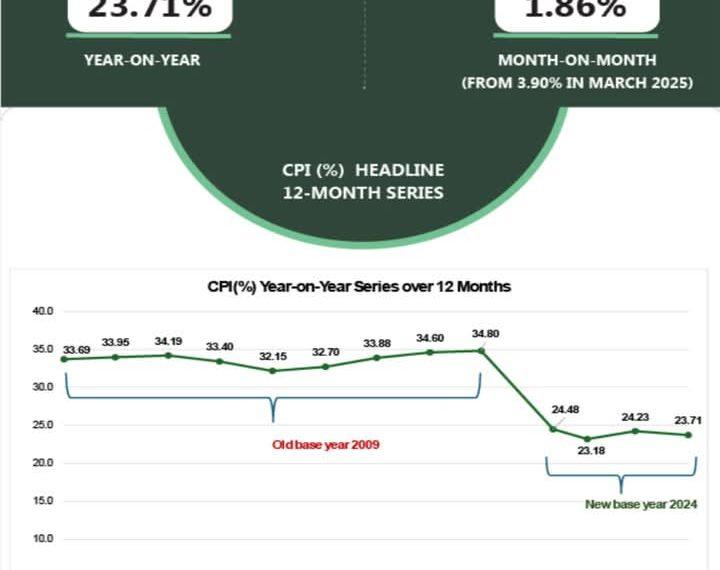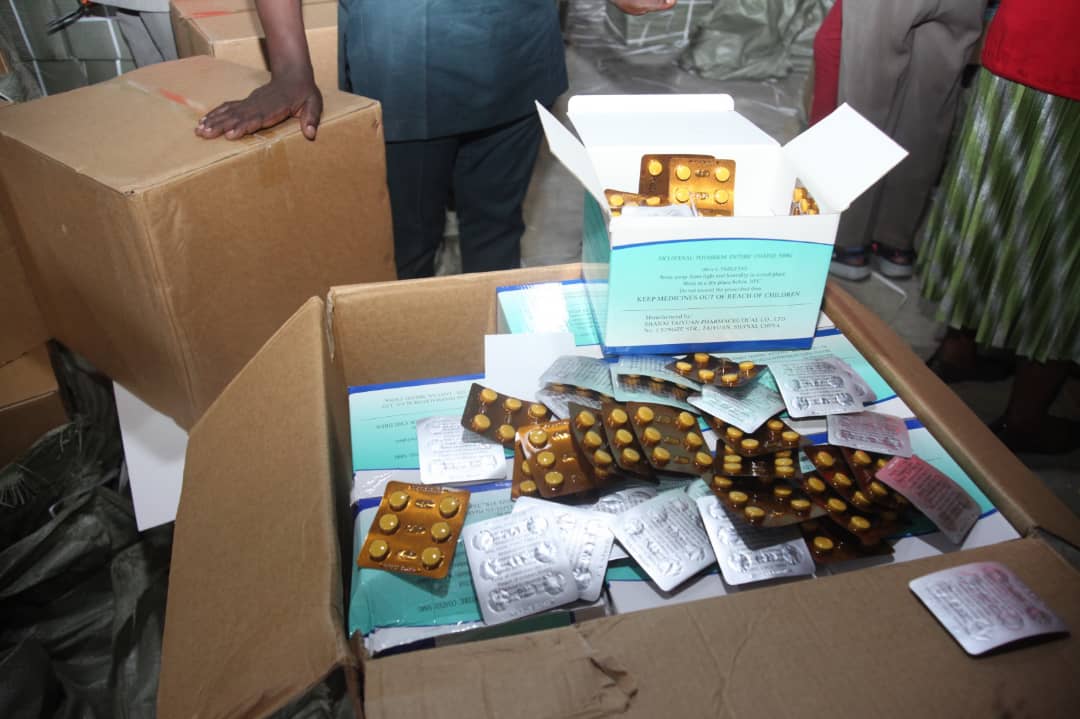The National Bureau of Statistics (NBS) has reported a slight drop in Nigeria’s headline inflation rate, which eased to 23.71 per cent in April 2025, down from 24.23 per cent recorded in March.
According to the bureau’s latest Consumer Price Index (CPI) release on Thursday, the movement in the headline inflation reflects a 0.52% decrease between March and April.
On a year-on-year basis, the NBS said the April 2025 headline inflation rate was 9.99% lower than what was recorded in April 2024, which stood at 33.69 per cent.
“This shows that the Headline inflation rate (year-on-year basis) decreased in April 2025 compared to the same month in the preceding year (i.e., April 2024), though with a different base year, November 2009 = 100,” the report noted.
On a month-on-month scale, inflation also slowed. “The Headline inflation rate in April 2025 was 1.86%, which was 2.04% lower than the rate recorded in March 2025 (3.90%),” the NBS stated. “This means that in April 2025, the rate of increase in the average price level is lower than the rate of increase in March 2025.”
Read also: Reps kick against bill for rotational presidency
According to the NBS, food inflation also saw a notable change. Year-on-year, it was recorded at 21.36 per cent in April 2025, representing a significant drop from the 40.53 per cent recorded in April 2024.
The bureau attributed this sharp decline to a change in the reference base year. “The significant decline in the food annual inflation figure is technically due to the change in the base year,” NBS explained.
However, month-on-month, food inflation in April 2025 was 2.06%, slightly down by 0.12% from 2.18% in March.
The decrease was linked to falling prices in key food items. “The decrease can be attributed to the rate of decrease in the average prices of Maize (Corn) Flour, Wheat Grain, Okra Dried, Yam Flour, Soya Beans, Rice, Bambara beans, Brown Beans, etc.,” the report stated.
Some states experienced more intense food price increases than others. On a year-on-year basis, Benue recorded the highest spike with 51.76 per cent, followed by Ekiti (34.05%) and Kebbi (33.82%). Meanwhile, Ebonyi (7.19%), Adamawa (9.52%), and Ogun (9.91%) recorded the slowest food inflation rise.
On a month-on-month basis, Benue (25.59%), Ekiti (16.73%), and Yobe (13.92%) topped the list for the highest food inflation, while Ebonyi (-14.43%), Kano (-11.37%), and Ogun (-7.06%) recorded a decline in food prices.








